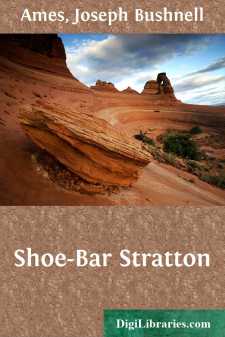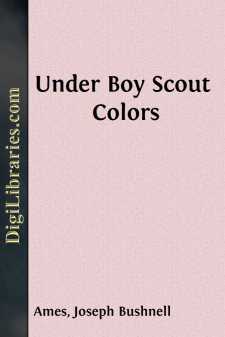Categories
- Antiques & Collectibles 13
- Architecture 36
- Art 48
- Bibles 22
- Biography & Autobiography 813
- Body, Mind & Spirit 142
- Business & Economics 28
- Children's Books 15
- Children's Fiction 12
- Computers 4
- Cooking 94
- Crafts & Hobbies 4
- Drama 346
- Education 46
- Family & Relationships 57
- Fiction 11828
- Games 19
- Gardening 17
- Health & Fitness 34
- History 1377
- House & Home 1
- Humor 147
- Juvenile Fiction 1873
- Juvenile Nonfiction 202
- Language Arts & Disciplines 88
- Law 16
- Literary Collections 686
- Literary Criticism 179
- Mathematics 13
- Medical 41
- Music 40
- Nature 179
- Non-Classifiable 1768
- Performing Arts 7
- Periodicals 1453
- Philosophy 64
- Photography 2
- Poetry 896
- Political Science 203
- Psychology 42
- Reference 154
- Religion 513
- Science 126
- Self-Help 84
- Social Science 81
- Sports & Recreation 34
- Study Aids 3
- Technology & Engineering 59
- Transportation 23
- Travel 463
- True Crime 29
Shoe-Bar Stratton
Description:
Excerpt
CHAPTER I
BACK FROM THE DEAD
Westward the little three-car train chugged its way fussily across the brown prairie toward distant mountains which, in that clear atmosphere, loomed so deceptively near. Standing motionless beside the weather-beaten station shed, the solitary passenger watched it absently, brows drawn into a single dark line above the bridge of his straight nose. Tall, lean, with legs spread apart a bit and shoulders slightly bent, he made a striking figure against that background of brilliant sky and drenching, golden sunlight. For a brief space he did not stir. Then of a sudden, when the train had dwindled to the size of a child’s toy, he turned abruptly and drew a long, deep breath.
It was a curious transformation. A moment before his face—lined, brooding, somber, oddly pale for that country of universal tan—looked almost old. At least one would have felt it the face of a man who had recently endured a great deal of mental or physical suffering. Now, as he turned with an unconscious straightening of broad shoulders and a characteristic uptilt of square, cleft chin, the lines smoothed away miraculously, a touch of red crept into his lean cheeks, an eager, boyish gleam of expectation flashed into the clear gray eyes that rested caressingly on the humdrum, sleepy picture before him.
Humdrum it was, in all conscience. A single street, wide enough, almost, for a plaza, paralleled the railroad tracks, the buildings, such as they were, all strung along the further side in an irregular line. One of these, ramshackle, weather-worn, labeled laconically “The Store,” stood directly opposite the station. The architecture of the “Paloma Springs Hotel,” next door, was very similar. On either side of these two structures a dozen or more discouraged-looking adobe houses were set down at uneven intervals. To the eastward the street ended in the corrals and shipping-pens; in the other direction it merged into a narrow dusty trail that curved northward from the twin steel rails and quickly lost itself in the encompassing prairie.
That was all. Paloma Springs in its entirety lay there in full view, drowsing in the torrid heat of mid-September. Not a human being was in sight. Only a brindled dog slept in a small patch of shade beside the store; and fastened to the hotel hitching-rack, two burros, motionless save for twitching tails and ears, were almost hidden beneath stupendous loads of firewood.
But to Buck Stratton the charm lay deeper than mere externals. As a matter of fact he had seen Paloma Springs only twice in his life, and then very briefly. But it was a typical little cow-town of the Southwest, and to the homesick cattleman the sight of it was like a refreshing draft of water in the desert. Pushing back his hat, Stratton drew another full breath, the beginnings of a smile curving the corners of his mouth.
“It sure is good to get back,” he murmured, picking up his bag. “Someway the very air tastes different. Gosh almighty. It don’t seem like two years, though.”
Abruptly the light went out of his eyes and his face clouded....



